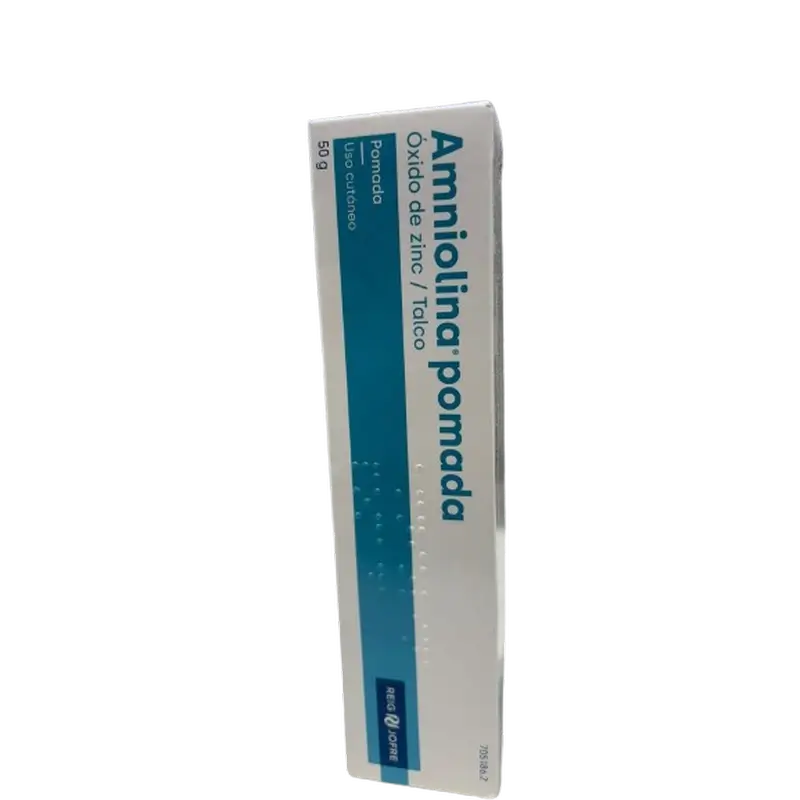Ointment for the prevention and treatment of nappy rash and irritation in other rubbing areas.
Contains 50 gr.

It is a medicated ointment formulated with zinc oxide and talc for the prevention and treatment of dermatitis of the nappy area. It is also used to prevent rashes and irritations that may appear in other areas as a result of rubbing against clothing or other areas of the skin.
It comes in a 50g tube.
It is indicated for use in both adults and children.
During pregnancy and breastfeeding, consult your doctor or pharmacist before use.
Apply a thin layer of ointment on the area to be treated, previously clean and dry, massaging gently but insistently with the fingertips.
It can be reapplied as many times as necessary. In the case of babies, it is recommended to do so with every nappy change, insisting on those areas most prone to injury.
Do not use Amnioline:
In case of allergy to zinc oxide, talc or any of the excipients present in the formula of this medicine.
Near the eyes, mouth or other mucous membranes.
If the skin area to be treated has wounds that secrete fluid.
Amnioline may cause side effects, as with all medicines, although this does not mean that everyone will experience side effects. In this case, adverse effects do not usually occur, except on rare occasions when hypersensitivity reactions to any of the components of this medicine, such as rash, irritation, etc., may occur.
Each gram of Amnioline ointment contains 170 mg of zinc oxide and 75 mg of talc as active ingredients. The other excipients are: filmy petrolatum, liquid petrolatum, lanolin, dimethicone, glycerol, corn starch and rose essence.
Amniolina is a white ointment with a pleasant rose scent, perfect for keeping baby's bottom protected or other areas of the skin that require its use.
Read the leaflet included with this medicine carefully. If you have any questions, you can consult our team of expert pharmacists.
The prices of non-prescription medicines are setby law. In our online pharmacy you can buy this medicine at a discount of 10%, which is the maximum allowed by law.

